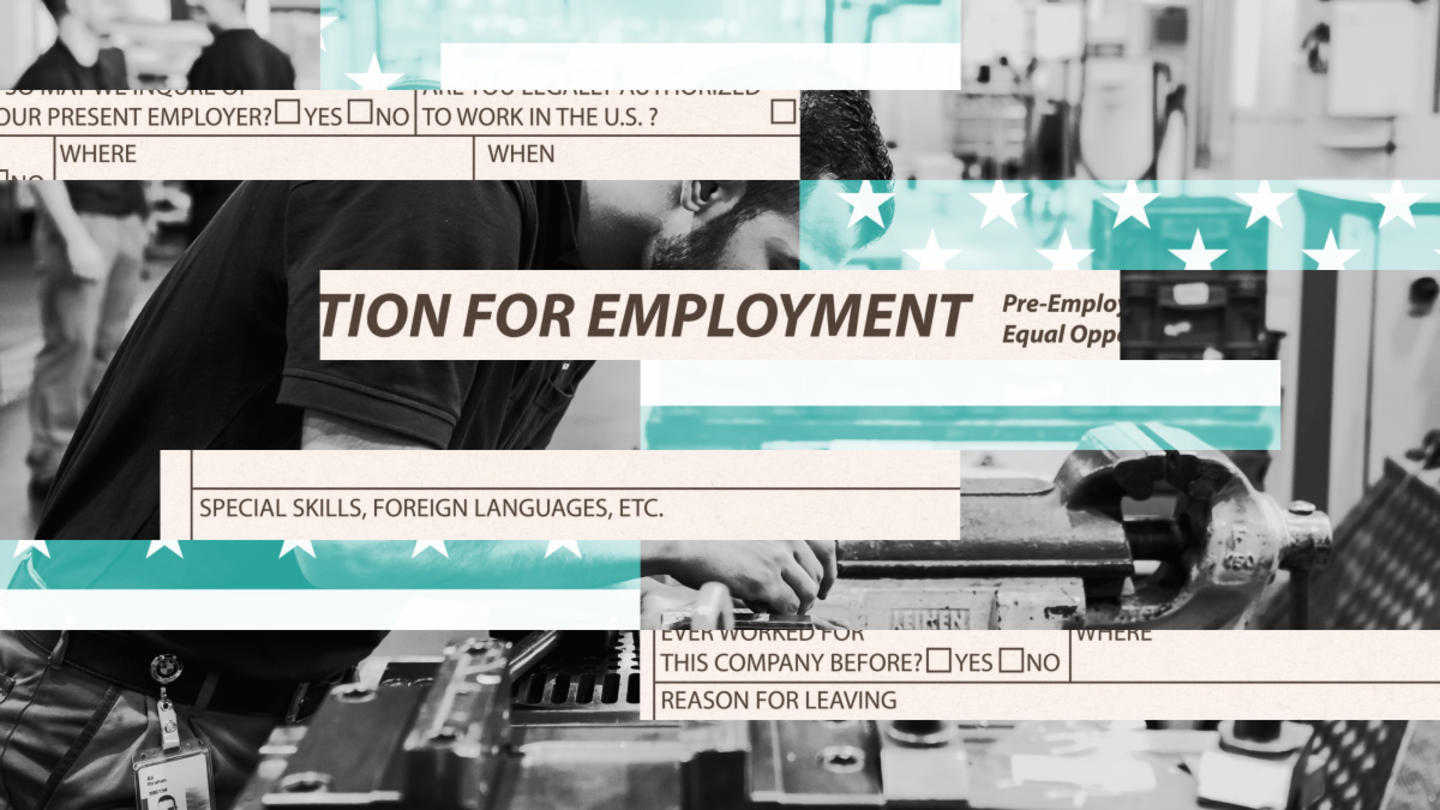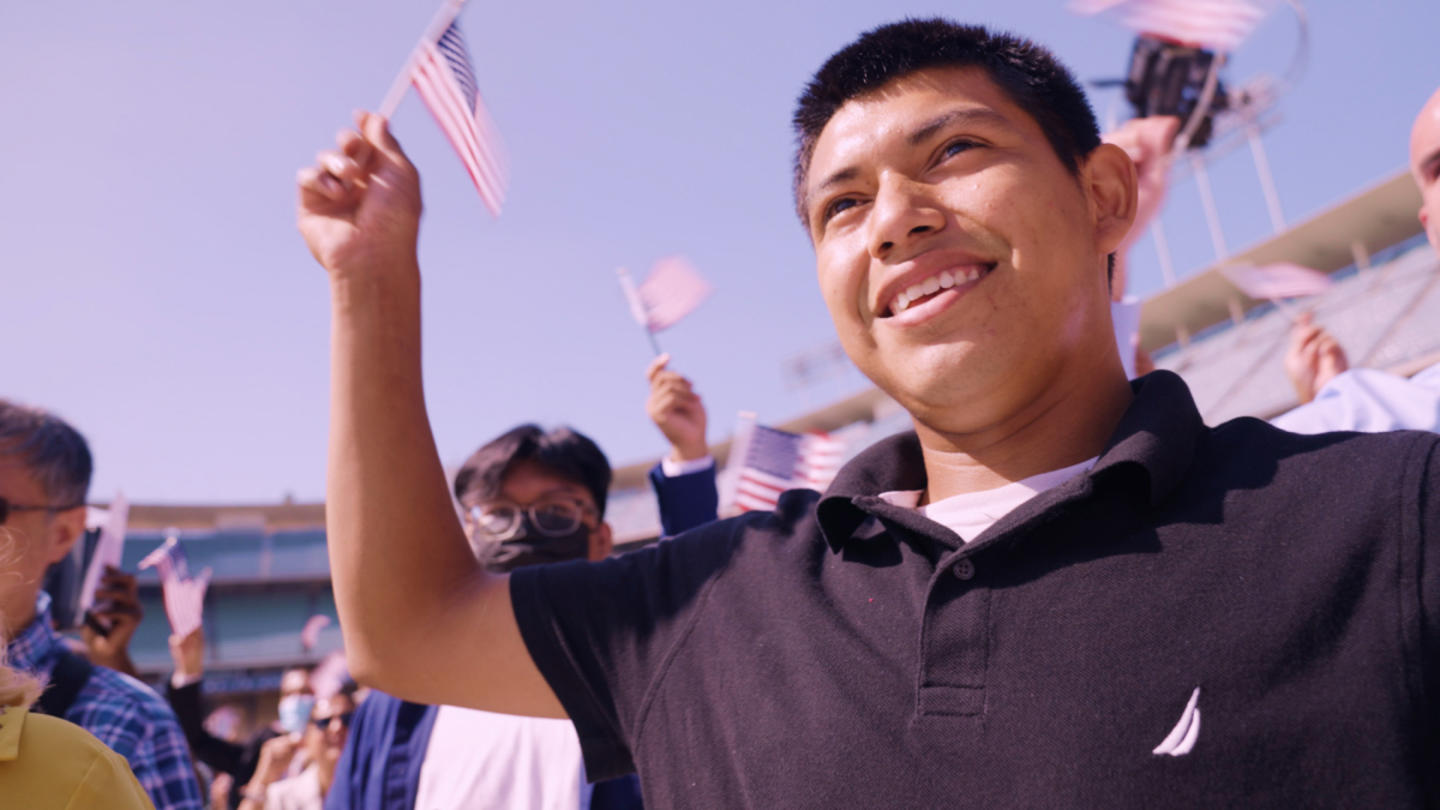In Afghanistan, Shoaib Sahiby had built a good life for himself and his family.
He had a BA in English, and had worked as a capacity building manager and senior administrative assistant.
Then came 2016. Conflicts in the area made it too dangerous to stay, and Sahiby and his family fled to the U.S., landing in Dallas. There, despite his qualifications, he struggled to find work. He expected, understandably, to find the same type of work he had done in Afghanistan. Instead, he couldn't land an interview for even an entry-level job.
"I did everything I could to support my family," says Sahiby. "For a year I was struggling. I was doing anything to not just make money but learn how the system works, to find my way up."
Eventually, his relative helped him get an interview for a position as a receptionist at the hospital where she had a network.
Sahiby was hired on the spot. As he began work, he realized that it wasn't a lack of qualifications that had been holding him back — it had been having a network, and understanding the language of the American job market, something few refugees have access to when arriving in the U.S.
While moving up from receptionist to office assistant to a senior level administrator, Sahiby was connected with Upwardly Global, a refugee employment support program partnering with Stand Together Trust. The coach he was paired with did more than just help him revamp his resume — "she gave me all the morale, all the courage, all the motivation to help me become more motivated and find and do what I wanted to do. It was more than a coach for me."
Today, Sahiby works as a job coach for Upwardly Global, helping to eliminate barriers to refugee employment. In bringing their skills into the U.S. economy, he and his colleagues aren't just helping the migrants — they're also benefiting the American workforce as a whole.
Helping refugees find jobs and benefiting from their skills will help fill workforce gaps in America
Afghan refugees began fleeing to the U.S. in record numbers after the Taliban regained power last August.
Many were highly skilled and educated, but faced challenges translating their international experiences to the American market. They ended up with low-paying jobs below their qualifications that were hardly enough to support their families.
This only perpetuated the already-existing cycle of stigma: Many Americans perceived refugees as 'burdens' on the American economy, or as stealing jobs.
However, a further look would show that the situation can be a win-win for both: Refugees are uniquely able to provide services that America needs. Currently, the U.S. has a gap in its professional workforce, with a particular shortage of workers in STEM (science, technology, engineering, and mathematics) fields.
Nearly a third of vacant jobs in America are in STEM fields, but only 11% of the U.S. population is qualified to fill them.
Many of the immigrants and refugees that Upwardly Global works with are highly qualified engineers, IT workers, and scientists, poised to fill these workforce gaps.
"These people already had all the knowledge," says Sahiby. "They already had talents. The only thing they were missing was networking or connecting to the right community base."
Migrants already have the skills — Upwardly Global provides the opportunity
Upwardly Global created a tailor-made program for Afghan professionals. Their Afghan Rapid Response Portal provides virtual training guides and self-paced modules on critical skills and cultural norms needed to effectively navigate a job search in the U.S.
The refugee employment program also matches job seekers with a coach familiar with their prospective industry to work with them one-on-one, and possibly a mentor working in their industry. They also connect them with employers looking to hire, drawing from a network of corporate partners.
"Most of the people we help come with technical backgrounds and expertise," says Jennie Murray, vice president of programs for Upwardly Global. "What they need is that cultural piece, the soft skills, to be able to do a U.S.-style professional job search, to get an interview, to negotiate a job offer, and to integrate into the workforce."
Over 3,500 people have used the portal's public materials so far, and 1,400 Afghan refugees have been enrolled to receive one-on-one coaching. This has resulted in 125 job placements in just a few months in the tech, engineering, logistics and operations industries, transforming the lives of refugees. Many have gone from earning $2,000 or less annually to an average salary of over $68,000.
And Upwardly Global doesn't just help refugees finding jobs — they also train employers to recognize the unique value-add of immigrant and refugee talent, as well as how best to dismantle barriers on the recruiting and hiring side that prevent newcomers from being hired. Doing so encourages the widespread understanding of how incorporating refugees into local workforces can strengthen communities by enriching them with a wider array of professional backgrounds, perspectives, and life experiences.
"They are an incredible infusion of diverse talent for employers with immense hiring needs," says Murray.
What started as a career development course has become a community
Far more than just a professional tool, Upwardly Global offers a lifelong support system of fellow immigrants and refugees who provide encouragement, guidance, and friendship to draw on for years to come.
"When they come to a new place and they're distracted with so many things, this morale and this motivation helps them find their place," says Sahiby.
Technical knowledge of networking and interviewing is valuable — but not nearly as much as empowering migrants with the autonomy to take control of not only their professional, but their personal lives as well.
Equipping themselves to help new migrants from the Ukraine, and beyond
Upwardly Global has already worked with over 18,000 internationally-trained professionals with the goal of moving them out of underemployment and into skill-aligned, professional roles in top industries like tech and healthcare. They have also partnered with more than 150 U.S. employers to help drive immigrant and refugee hiring and workforce inclusion.
The organization is developing many new tools, including a digital literacy training in partnership with Microsoft, Google, Coursera, and Udemy; an employer-facing module right where employers can adopt more inclusive recruitment, hiring, and workplace practices; and working with Artificial Intelligence experts to create a labor market matching tool.
And as conflict and migration fluxes across the globe, Upwardly Global's services will only become more urgent. Sahiby is now broadening his skills to assist not just Afghans, but also a growing number of Ukrainian and other refugees in the U.S.
Upwardly Global is strengthening communities, one job placement at a time
Today, Sahiby is proud to have placed over 25 Afghan professionals in jobs that utilize their unique talents and help them provide for their families. The crisis that propelled his family to a new and uncertain life in America seven years ago has grown into an opportunity to realize the value and talents migrants have to offer the U.S. workforce, and help others to do the same.
"Upwardly Global helped me to network with my community - not just (the professional community), but also the community of refugees and immigrants that needed my help," he says.
Upwardly Global is supported by Stand Together Trust, which provides funding and strategic capabilities to innovators, scholars, and social entrepreneurs to develop new and better ways to tackle America's biggest problems.
Learn more about Stand Together's immigration reform efforts.




